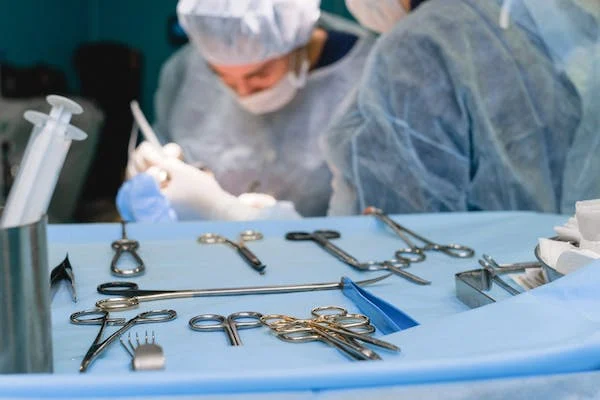Hernia mesh lawsuits have become a growing concern in the United States in recent years. While hernia mesh has been used successfully for many years, some patients have experienced serious complications after undergoing hernia repair surgery. These complications may include chronic pain, infection, adhesions (scar tissue), mesh migration, organ perforation, and other serious health problems. In some cases, these complications can be severe enough to require additional surgeries, prolonged hospitalization, or even result in death.
A hernia is a common medical condition that occurs when an internal organ or fatty tissue protrudes through a weak spot in the muscle or connective tissue that surrounds it. According to the National Institutes of Health (NIH), approximately 5 million Americans develop hernias each year, and more than 1 million hernia repair surgeries are performed annually in the United States. Hernia repair surgery is typically performed by inserting a mesh patch to reinforce the weakened area and prevent future hernias from forming.
Hernia mesh is a medical device made from a variety of materials, including polypropylene, a type of plastic. The mesh is designed to be inserted into the body during surgery and left in place permanently. The mesh patch is intended to provide additional support to the weakened area and promote tissue growth around it, ultimately reducing the risk of future hernias.
However, some of the hernia mesh products that have been used in the United States have been found to be defective and dangerous. Plaintiffs in hernia mesh lawsuits allege that the mesh products were not properly tested, that manufacturers failed to adequately warn patients and doctors about the risks associated with the products, and that manufacturers failed to take adequate steps to ensure the safety and effectiveness of their products.

In recent years, a number of hernia mesh products have been the subject of lawsuits in the United States. These products include Atrium C-Qur mesh, Bard PerFix Plug, Bard Ventralex mesh, Covidien Parietex mesh, Ethicon Physiomesh, and others. Many of these lawsuits have resulted in multi-million dollar settlements for plaintiffs.
For example, Ethicon, a subsidiary of Johnson & Johnson, withdrew its Physiomesh product from the market in 2016 after a large number of patients reported complications, including hernia recurrence and the need for additional surgeries. Since then, thousands of hernia mesh lawsuits have been filed against Ethicon and Johnson & Johnson, with plaintiffs alleging that the company knew about the risks associated with the product but failed to warn patients and doctors.
Another example is Bard, which has faced lawsuits over its PerFix Plug and Ventralex mesh products. In 2011, the company settled a lawsuit for $184 million, after it was found that the PerFix Plug had a design defect that caused it to fail in some patients. The Ventralex mesh has also been the subject of lawsuits, with plaintiffs alleging that the product can cause chronic pain, infection, and other complications.
If you have undergone hernia repair surgery and have experienced complications or adverse effects as a result of the hernia mesh product used during your surgery, you may be eligible to file a hernia mesh lawsuit. It is important to consult with an experienced attorney who specializes in medical device lawsuits to determine your legal options.
In conclusion, hernia mesh lawsuits have become a growing concern in the United States, as some patients have experienced serious complications after undergoing hernia repair surgery. If you have undergone hernia repair surgery and have experienced complications or adverse effects, it is important to seek legal counsel to determine if you may be eligible to file a hernia mesh lawsuit. As the number of lawsuits continues to rise, it is likely that the hernia mesh industry will face increased scrutiny and regulation, to ensure the safety and effectiveness of these medical devices.
